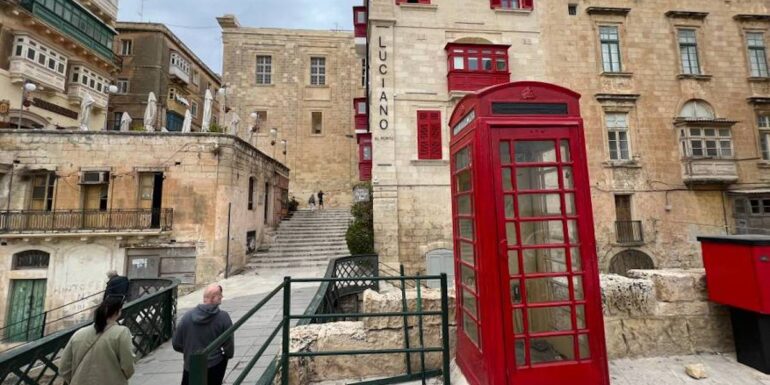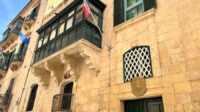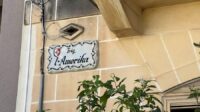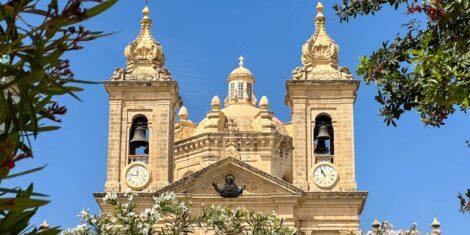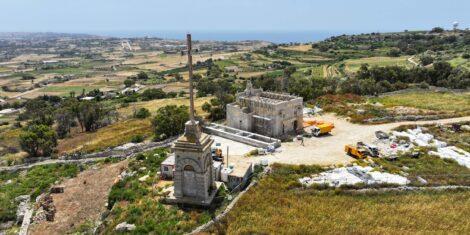A diglossia is what happens when you have two dialects, or languages, being used by the same community. Evidently, Malta is a case of this, with Maltese and English as its official languages.
Malta was in a state of diglossia for quite some time. In fact, one could also say that we are still in that state. This developed over time as different civilisations conquered the island. All these cultures were fossilized onto each other, which really is also how eventually the Maltese identity was formed.
The Context of the Maltese Struggle
In the 19th and 20th centuries, the issue was raised on a national level, and then also concluded.
To begin with, Sicilian and Latin were the two most important languages pre-Hospitaller rule. Italian (not Sicilian) became the language of the state in the time of the Knights’ stay. This meant that whilst Latin remained as an administrative and official language, Italian now became the language of the upper classes.
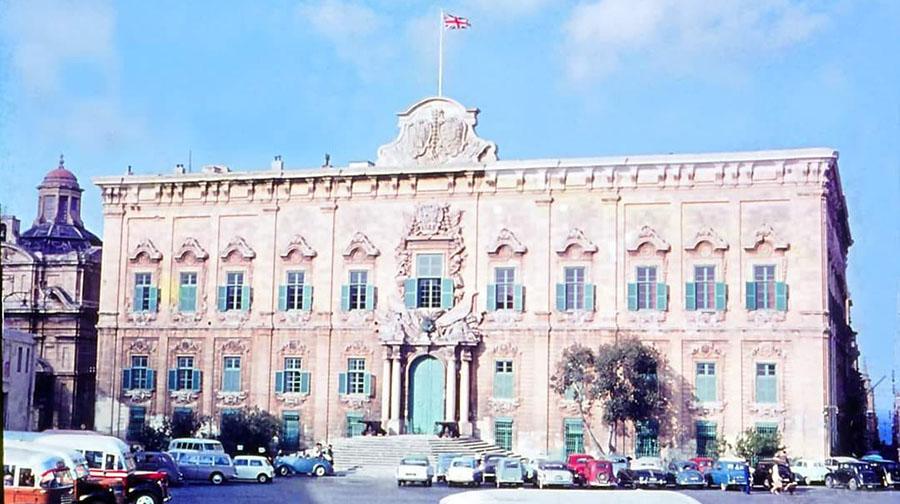
After the British took over, around the official time Malta became a British colony, there were the first efforts to make English the official language of the islands. Immediately this caused an uproar since the most powerful locals, including the Catholic church, were against this. It was not pushed any further.
The Anglicanization of Malta
Instead of outrightly obliging the Maltese to speak in English, the British made it very clear that without English it was much harder to find good work.
A lot of Maltese people were traders and merchants. So as the decades of the 19th century passed, more people were learning English. It proved difficult to get by without it if you wanted anything from the colonialists. By the mid-century, you needed both Italian and English if you wanted to work with the government.
…And what about Maltese?
Maltese was very much a disregarded underdog in this whole issue. Many people spoke it but most of these people were powerless working class citizens. Naturally, they had no say in the trajectory of this issue.
The thing that liberated Maltese and got it to start being printed and slowly given back to its people, was the freedom of the press in 1839. Suddenly there was a small but considerable group of people who were publishing fiction, poetry, and all kinds of writings. It is thanks to these people that the language eventually became recognized as a language in its own right, and not just as a dialect of Arabic.
Italian Unification and British Paranoia
There was a more prominent issue at the time. This was the growing nationalism in Malta after the successful unification of Italy in 1861. This brought a new sense of belonging for the Maltese people who sympathized with the Italians. The British grew worried, since many of these people were educated and powerful people. Again, this included many of the members of the Catholic church.
In the late 1870’s a commission was sent from the U.K. to do a study on education. From it the commissioners concluded that Maltese could be used in early education to help students learn English, after which the latter would be the sole language used. The point was to eventually phase out Italian from all the places it was still in use; one example being the courts. This movement became known as the Reform Party, and the founder of this party was Sigismondo Savona.
The Reaction of the Italophiles
Under Fortunato Mizzi, the Anti-Reform Party was formed. Although Mizzi knew and understood that English was important on a practical level, he emphasized the importance of Italian as the language used by most of the people to communicate with each other. The emergence of this issue on a political sphere brought with it a stronger opposition to the continued British rule. This was almost a 100 years before Independence.
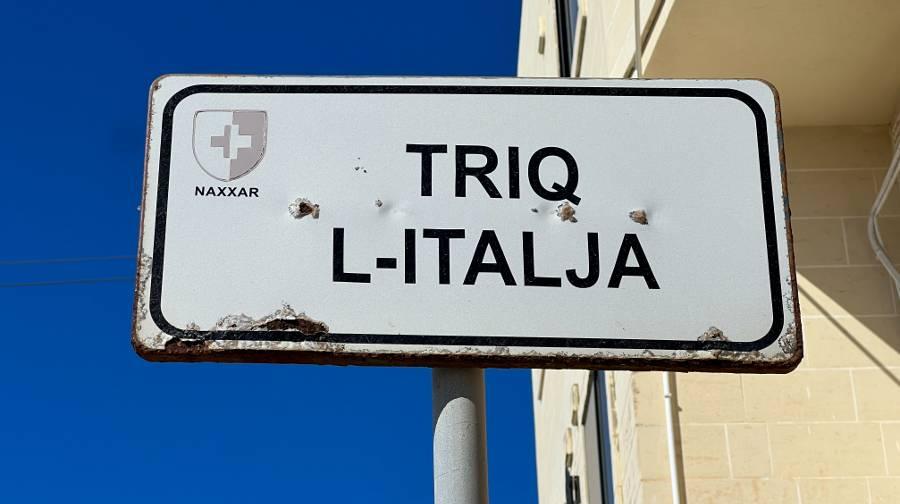
The Proposed Solutions
In 1881, Savona attempted to introduce the pari-passu system. The system said that children would be taught English and Italian at the same time. However, this did not pass.
The second attempt at a solution for this issue was when Lord Gerald Strickland introduced the notion of free choice. He suggested that it was up to the parents of the children to choose which language their kids would learn. Naturally this was a calculated move by the Reform party and the Government. They took advantage of the fact that the Maltese knew that in a British colony, it is much easier and more practical to have one’s children learn English.
The Anti-Reform Party were doing everything in their power to remove Strickland’s new reforms. And by the end of the 1880’s the Constitution was suspended.
With these two parties in place, one can see the first emergence of Maltese politics as we know it today.
Maltese Self-Government
After the Great War, the Maltese people were given limited self-government. Part of the new 1921 Constitution said that both Italian and English were the official languages of Malta.
This, however, did not hold for long as Lord Strickland became Prime Minister in 1927, and started giving more prominence to English and Maltese. Suddenly Italian was being removed from every-day places, documents and street names. By 1929 Maltese was for the first time ever allowed in the courts. By 1933 Maltese, along with the other two languages, was now also an official language of the islands.
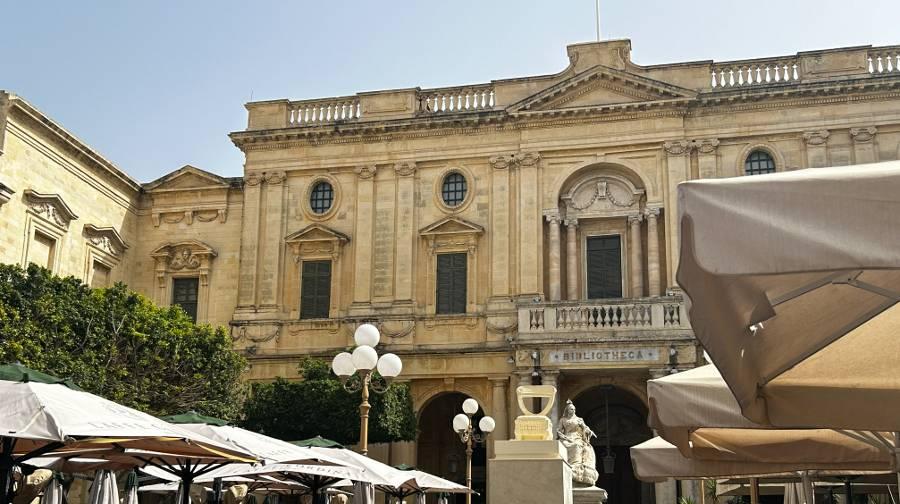
The Second World War
It is here that the Anglo-Italo debate ended: when Italy bombed Malta. The British Government illegally exiled almost 50 Italophiles to Uganda, justifying it as a precaution during a time of war.
With the major Italophiles out of the picture, Italy bombing Malta, and the alliance formed between the British and the Maltese during the war, it was very clear that the Italian sympathy had gone down by a considerable amount. When the war was over, Malta was granted self-government. With that, Italian was removed from being an official language. Maltese and English remain to this day, the two languages of the country.
Maltese Today
The two major parties in Malta were essentially founded during this major long-standing political debate. They remain the most popular ones to this day. The Anglo-Italo sentiments in Malta still survives to this day, with Brexit possibly being the latest factor in the game. But, if you simply look at football or even television programmes followed by certain generations, it is very clear that this tug-of-war of cultures is something that needs to be considered when trying to understand the local culture.
